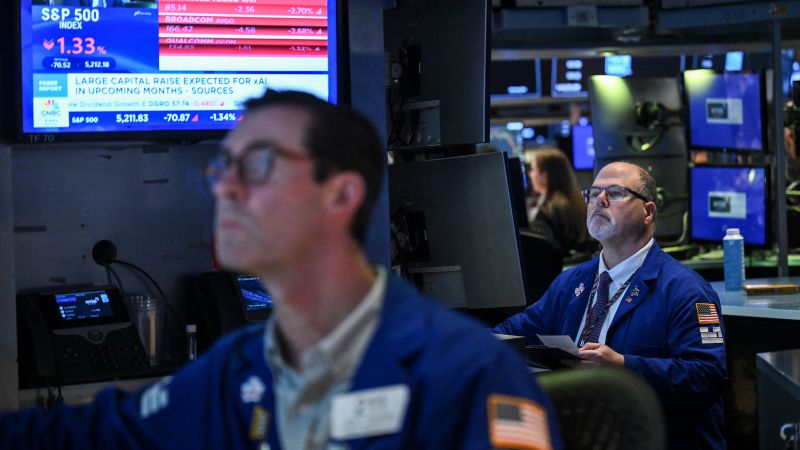
Trump keeps finding new ways to terrify Wall Street
CNN
If you thought Trump’s trade war seemed chaotic, buckle up: The president’s latest salvo poses an even greater threat to the economy.
If you thought President Donald Trump’s trade war seemed chaotic, buckle up: His latest salvo poses an even greater threat to the economy. After months of swearing up and down he wouldn’t fire Federal Reserve Chair Jerome Powell, Trump on Thursday reversed course and said Powell’s “termination” couldn’t come soon enough. Stocks fell sharply. Then US stock traders had a nice three-day weekend — the first sunny and warm spring weather New York City has seen this year — to ponder whether Trump was serious. Perhaps Thursday’s threat was just a bit of bluster from a president prone to tantrums — a one-off social media post that his more stable advisers will surely try to rein in to avoid an all-out panic. Or…not. Shortly after the US stock market opened Monday morning, Trump once again attacked Powell for ostensibly not cutting interest rates fast enough. Stocks immediately tumbled and the US dollar fell to its lowest level in three years. While Trump’s tariff plan has been disruptive, the uncertainty it created had, to an extent, become priced in. Markets famously hate uncertainty, but the 90-day pause on the administration’s most aggressive tariffs offered a measure of reassurance that Trump may relent if there’s enough of a negative reaction.

Sales prices for sports teams are soaring to record levels. Here’s why, and what that means for fans
The Los Angeles Lakers topped their archrival the Boston Celtics with a record-setting $10 billion franchise price tag this week — just three months after the Celtics held the honor for the highest sale price for a professional sports team at $6 billion. The record may not last long.

Predictions from mainstream economists were dire after President Donald Trump launched his tariff campaign just a couple weeks after he began his second term in office: Prices would rise — sharply — they said, reigniting an inflation crisis that tens of millions of Americans had elected him to solve.

 Run 3 Space | Play Space Running Game
Run 3 Space | Play Space Running Game Traffic Jam 3D | Online Racing Game
Traffic Jam 3D | Online Racing Game Duck Hunt | Play Old Classic Game
Duck Hunt | Play Old Classic Game









